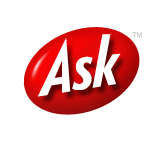This article is more than 1 year old
Google search rivals full of sound and fury
Signifying nothing
Some feel that Google could be challenged through some sort of vertical search engine. With video playing an increasingly important role on the web, for instance, there might be an opportunity to gain some ground via video search.
But Google already has a hand in all sorts of vertical search markets, including video, and with its new "universal search" platform, it's done a pretty good job of latching these efforts to the success of its main engine. "People are more likely to use Google's video search engine than they are to navigate away and use someone else's," Heisler continues.
He believes that any serious threat to Google's search hegemony will likely come from somewhere other the traditional Web. "Just as Microsoft's success was tied to the desktop, so too is Google's. Google works for people who are sitting at their desks. They don't dominate wireless in the same way."
But a recent study says otherwise. Market research firm M:Metrics just released its latest list of the top mobile destinations, and Google ranks number one, with almost twice as many visitors as both Microsoft and Yahoo!.

Ask.com launched its new Ask3D engine launched just weeks ago.
Ask Admits Defeat,but...
Ask.com acknowledges that Google is un-catchable. After Microsoft and Yahoo! declined our request for interviews about Google's search supremacy - "We don't comment on our competitors," said a Yahoo! spokesperson. Ask is frank about the possibility of anyone taking over the top spot in the search market. "We can't compete with Google in all areas and we're not trying to," says Doug Leeds VP of product development. "We're trying to be the other search engine people go to."
But he also points out that, despite Google's elephantine market share, there's still a huge amount of opportunity left over. "Just in the US, 25 million people a month are coming to Ask to do search, and 50 million are using us worldwide," he says. "Next to Google that's small. But next to Amazon, that's huge."
Yes, search sites from Microsoft and Yahoo! are also reaching an enormous number of users. But their situation is a bit different. As high-profile public companies with an eye towards share price, they can't help but worry about overall market share. Witness Terry Semel and his compensation package.

Yahoo!'s search engine is backed by a new ad platform known as Panama.
The Money Game
And that's not all these companies have to worry about. Google is also well ahead when it comes to search advertising - the money maker in this market. According to American Technology Research, Google makes roughly 12 cents for each search, whereas Yahoo! makes only eight. Considering the huge gap in market share between the two companies - and the enormity of the market - Yahoo!'s yearly search revenue isn't even in the same ballpark.
From 2005 to 2006, Yahoo!'s overall revenue grew from $5.3bn to $6.4bn. That's a decent increase - unless you compare it to Google growth. Over the same period, Google’s overall revenue leapt from $6.1bn to $10.6bn.
With its new Panama ad platform, Yahoo! had hoped to bridge that cents-per-click gap. Early days yet, but the service hasn't been as successful as the company hoped. "Already, Panama has come up short as it tries to mirror Google's ability to monetize ads," says Jupiter's Heisler. "Any time you have new algorithms like this, there tends to be a very steep learning curve."
Launched in May of 2006, Microsoft's ad platform, AdCenter, sparked a 23 per cent increase in Microsoft's online ad revenue in the first quarter of this year, but its market share is less than half that of Yahoo!'s. "As Google makes money hand over fist in this market, Yahoo! has had some hiccups and Microsoft has certainly not been as successful," says Lieb, of Search EngineWatch. "The market is on this hockey-puck growth curve and they haven't kept up."

Google controls between 56 per cent of the search market - and its popularity is growing.
If You Can't Beat Em, Join Em
Last week, in the wake of Terry Semel's resignation The New York Times ran a piece in its technology section called "After Shake-Up, What Now for Yahoo?". Quoting an "experienced Silicon Valley venture capitalist," it asked whether Yahoo! should give up on its own search tools - and off-load everything to Google.
A Yahoo! spokesperson said the company intends to remain a player in the search business, but The Times has a point. And that point may extend to Microsoft.
With Yahoo! unveiling Panama, Ask.com introducing Ask3D, and Michael Arrington rattling on about Sanaz Ahari leading a new Microsoft search team, there’s been plenty of talk about changes to the search market's competitive landscape. But Google is still very much in the driver’s seat. And it’s gonna stay that way.®
